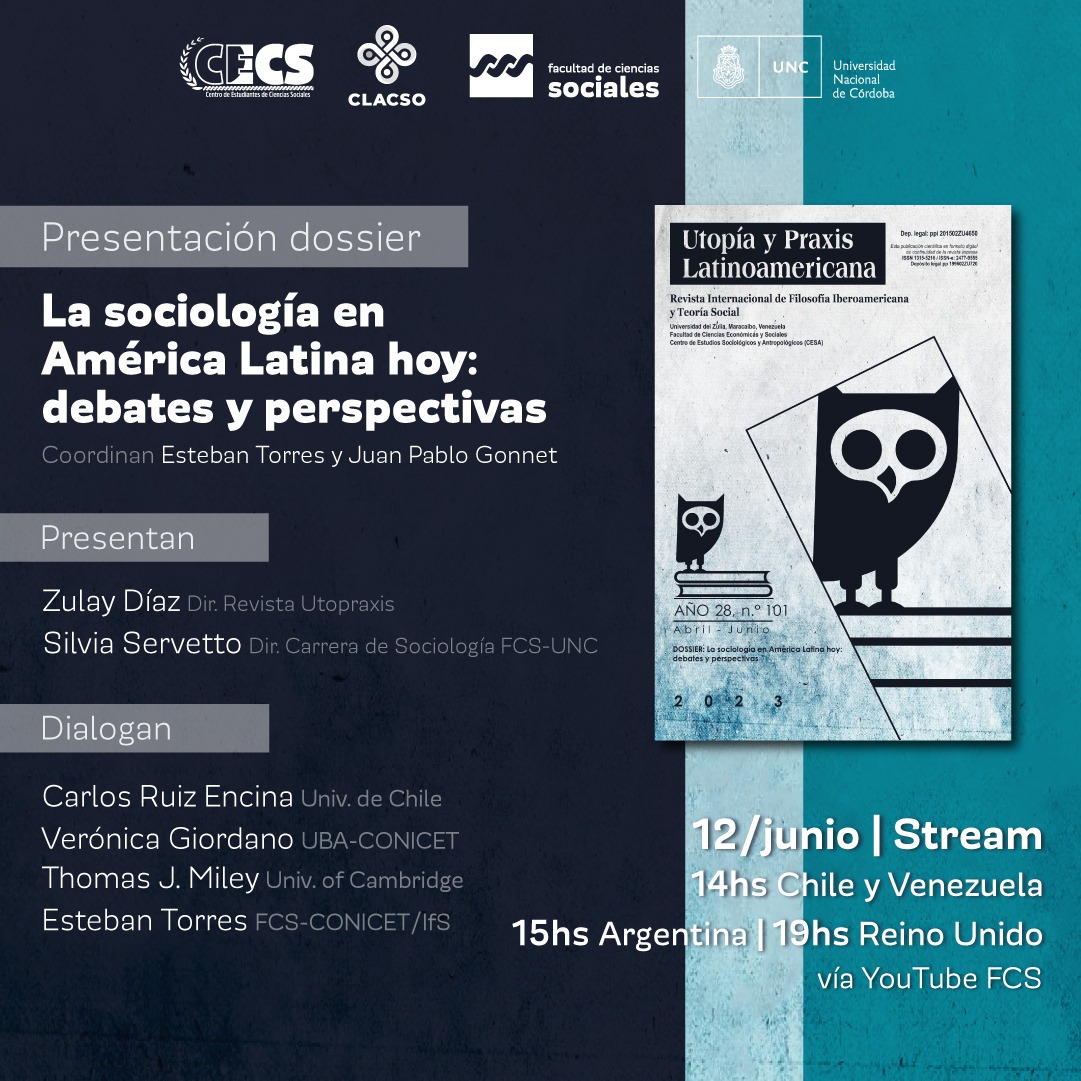Philosophical Foundations of Post-Non-Classical Ideas
Resumen
ABSTRACT
The goal of this study if to show the importance of humanist ideals in the modern civilization. In the world of global interconnectedness, human agency is becoming global as well. The main method employed in this study is dialectic which allows to speculatively construct any system using the language of universal categories. We also applied general scientific methods of the system theory, cybernetics, synergetics and philosophy of virtual reality. The study in general shows that all the main problems of an individual reside in the discrepancy between the level of spirituality in the society and the level of production and consumption of comforts of civilization.
RESUMEN
El objetivo de este estudio es mostrar la importancia de los ideales humanistas en la civilización moderna. En el mundo de la interconexión global, la agencia humana también se está volviendo global. El método principal empleado en este estudio es la dialéctica que permite construir especulativamente cualquier sistema utilizando el lenguaje de categorías universales. También aplicamos métodos científicos generales de la teoría de sistemas, cibernética, sinergética y filosofía de la realidad virtual. El estudio en general muestra que todos los problemas principales de un individuo residen en la discrepancia entre el nivel de espiritualidad en la sociedad y el nivel de producción y consumo de comodidades de la civilización.
Citas
ALEXANIAN, E.A. (2006). Les innovations du style narratif du XX siècle. Trans Internet-Zeitschrift für Kulturwissenschaften. Retrieved from: http://www.inst.at/trans/16Nr/05_1/alexanian16.htm
ASHBY, R.W. (1956). An Introduction to Cybernetics. London: Chapman & Hall.
BAUDRILLARD, J. (1970). La société de consummation. Ses mythes et ses structures. Paris: S.G.P.P.
BERTALANFFY, L. (1956). General System Theory. General Systems, 1, 1-10.
BOGDANOV, A.A. (1995). Socialism of science: scientific objectives of proletariat. Collected works: Russian positivism: Lesevich, Yushkevich, Bogdanov. Saint Petersburg: Nauka Publ.
CANETTI, E. (2014). Masse und Macht. Einbeck: AHA-BUCH GmbH.
DE CONDORCET, M. (1936). Sketch for a Historical Picture of the Progress of the Human Mind, London: St. Paul’s churchyard 1795.
DELEUZE, G., GUATTARI, F. (2007). Anti-Oedipus: capitalism and schizophrenia. Yekaterinburg: U-Faktoria Publ.
DMITRIEV, I. (2012). Socio-cultural basis of intellectual revolution of XVI-XVII centuries. Political conceptology [Politicheskaya konceptologiya], 1, 20-58.
FUTUYMA, D.J. (2005). Evolution. Sunderland: Sinauer Associates.
GAJDENKO, P.P. (2011). Immanuel Kant: from substance to subject, from being to action. History of modern European philosophy and its relation to science. Moscow: Knizhnyj dom Publ.
GRODSKIJ, V.S. (2016). The development of key ideas of economic theory. Moscow: Research Center RIOR, Research Center INFRA-M.
GULYGA, A.V. (2001). German classical philosophy. Moscow: Rolf.
HAKEN, H. (1978). Synergetics. An Introduction, Berlin: Springer.
HATCH, R.A. (1989). The Scientific Revolution: Paradigm Lost? University of Florida. History of History, 4(2), 34–39.
JOSHI, P.S. (2007). Gravitational Collapse and Spacetime Singularities. Cambridge: Cambridge University Press.
KHAKIMOV, E.M. (2007). Dialectics of hierarchy and non-hierarchy in philosophy and science. Kazan: Fan Publ., Tatarstan Academy of Sciences.
KISELEVA, M. (2008). Anthropology as a discipline: Immanuel Kant’s practical point of view. Man yesterday and today: interdisciplinary studies. Ch. 2. Russian Academy of Sciences, Institute of Philosophy. Moscow: IFRAN Publ.
KOLESNIKOVA, A.V. (2013). Philosophers of Renaissance: biographies and ideas: textbook. Novosibirsk: Novosibirsk State Agrarian University.
KORNAI, J. (2002). The system paradigm. The problems of economics, 4, 4-22.
LE BON, G. (2011). Psychology of peoples and masses. Moscow: Akademicheskij proekt Publ.
MAJSTROV, L.E. (1967). Probability theory: a historical outline. Moscow: Nauka Publ.
MEZHUEV, V.M. (2001). How is philosophy of culture possible? [Kak vozmozhna filosofiya kul'tury?]. Collected articles: from philosophy of life to philosophy of culture. Saint Petersburg: Aletejya Publ.
MIRONOV, V.V. (2016). Philosophy: textbook. [Filosofiya: Uchebnik]. Moscow: Yur. Norma Publ, Research Center INFRA-M.
MITIN, M.B., GAJDENKO, P.P., DAVYDOV, YU.N. (1979). Personality in the XX century: an analysis of bourgeois theories. Moscow: Mysl Publ.
MOSCOVICI, S. (1985). L'Age des foules: un traite historique de psychologie des masses. Bruxelles: Les Éditions Complexe.
NARSKIJ, I.S. (1976). Immanuil Kant. Moscow: Mysl Publ.
NOSOV, N.A. (2001). Manifesto of philosophy of virtual reality. Moscow: Put' Publ.
NURULLIN, R.A. (2016). Metaphysical foundations of physics. European Journal of Science and Theology, 12(3), 123-132.
NURULLIN, R.A. (2017). Multicultural Existence of Humankind in Conditions of Developing Global Civilization and Acceleration of Historical Rhythms. Man in India, 97(7), 179-190.
ORTEGA Y GASSET, J. (2003). The Revolt of the Masses. Moscow: AST Publ.
PETUSHKOVA, E.V. (2001). Mechanicism. World Encyclopedia: Philosophy. Ed. A.A. Gricanov. Moscow: AST Publ.
PRIGOGINE, I., STENGERS I. (1984). Order out of chaos. Man's new dialogue with nature. London: Heinemann.
RUDI, A.SH. (2012). Theory of equilibrium as a mechanism of stability. Omsk scientific bulletin, 3(109), 92-95.
SHLOMO, A. (1994). Hegel’s Theory of the Modern State. Cambridge: Cambridge University Press.
SPINOZA, B. (1994). Ethics. Great Books of the Western World. London: Penguin Classics.
STALIN, I.V. (1924). The basis of Leninism. Russian broadsheet newspaper: Pravda, № 9, № 11, № 14, № 15, № 18, № 96, № 97, № 103, № 105, № 107, № 108, № 111.
STYPIN, V.S. (2011). History and philosophy of science. Moscow: Vysshaya shkola.
SYCHEV, A.A. (2016). Introduction to philosophy: textbook. Moscow: Alfa-M, Research Institute INFRA-M.
TARDE, G. (1999). Opinion and Crowd. Moscow: KSP+.
TURNER, B.S. (2006). The Cambridge Dictionary of Sociology. Cambridge: Cambridge University Press.
WIENER, N. (1948). Cybernetics or Control and Communication in the Animal and the Machine. Paris: Hermann & Cie Editeurs.












